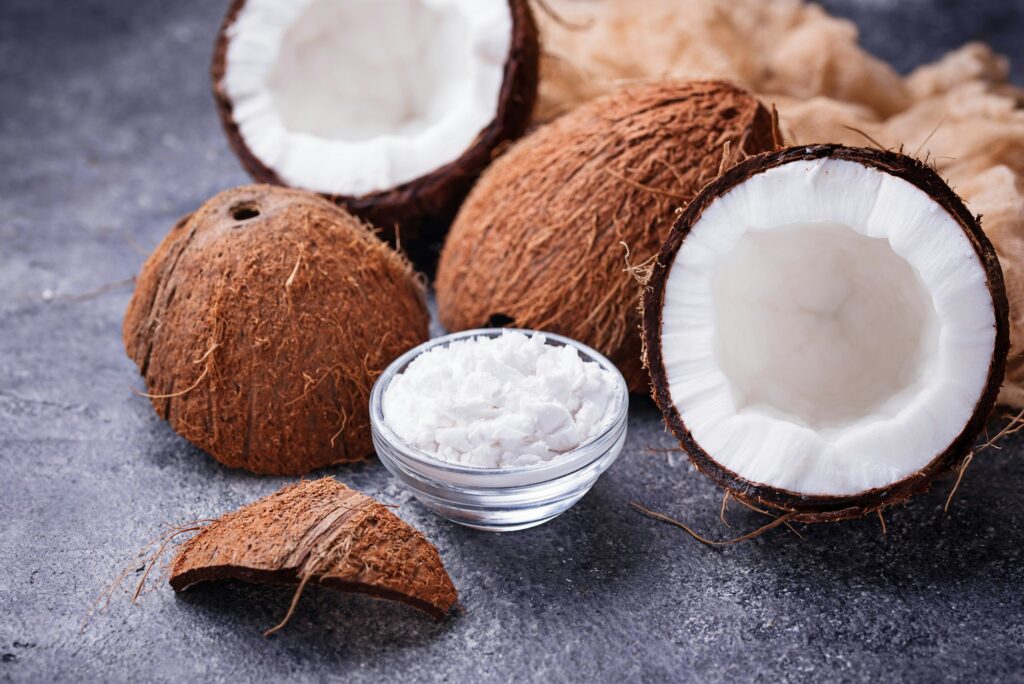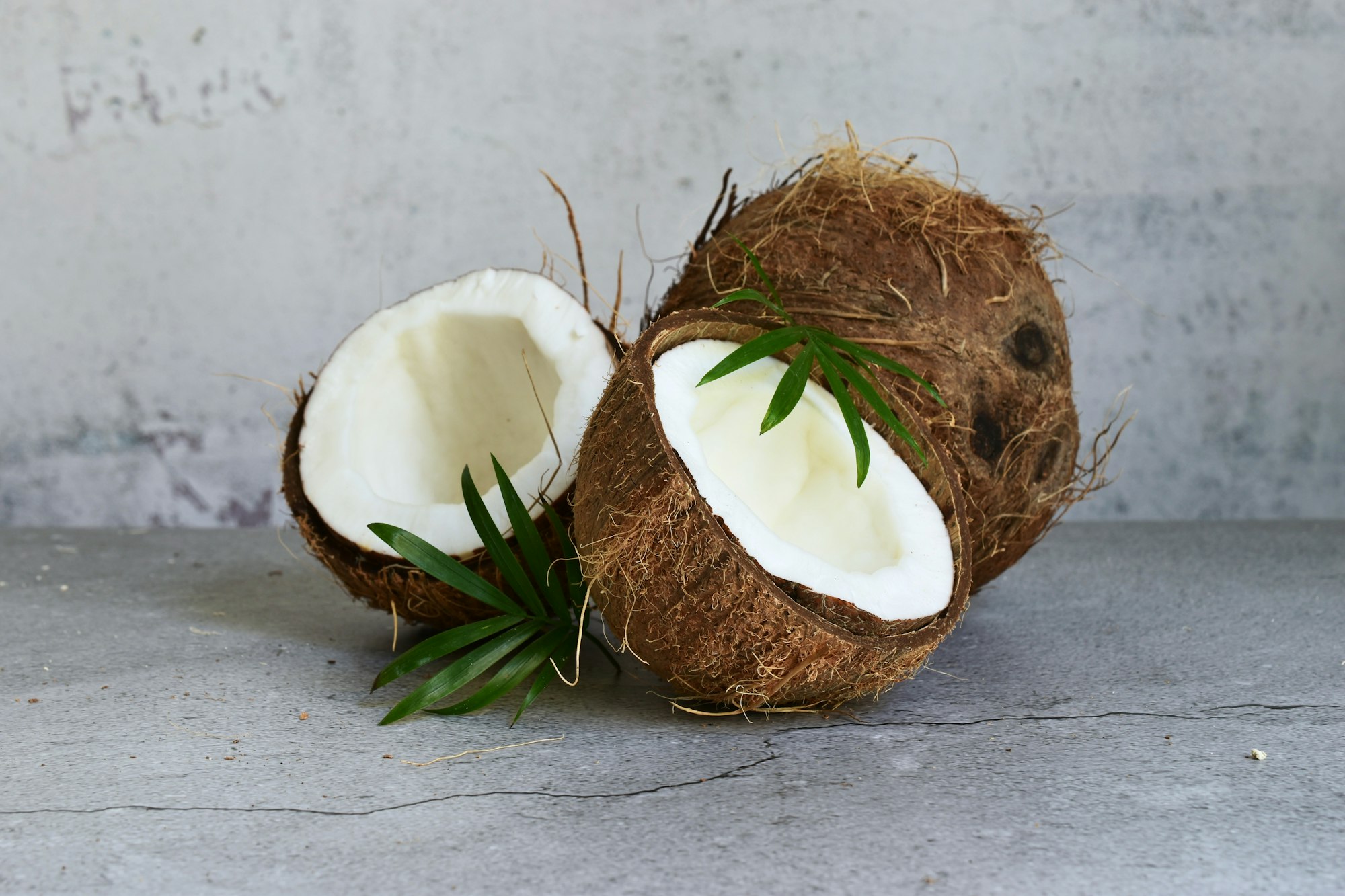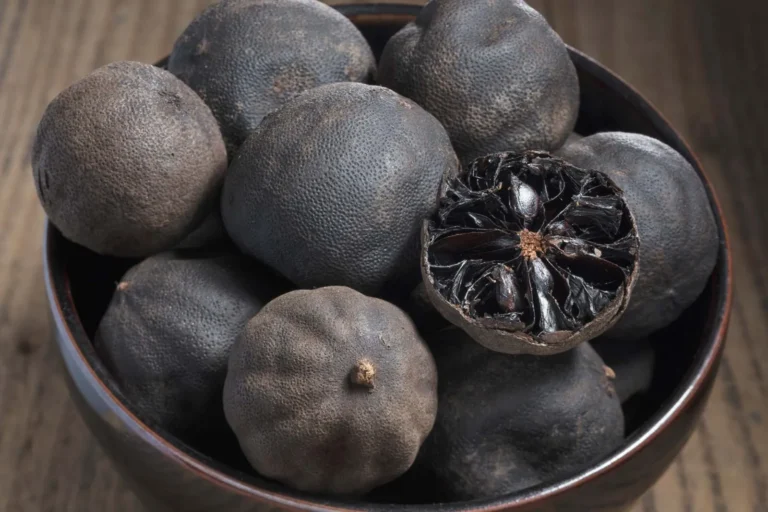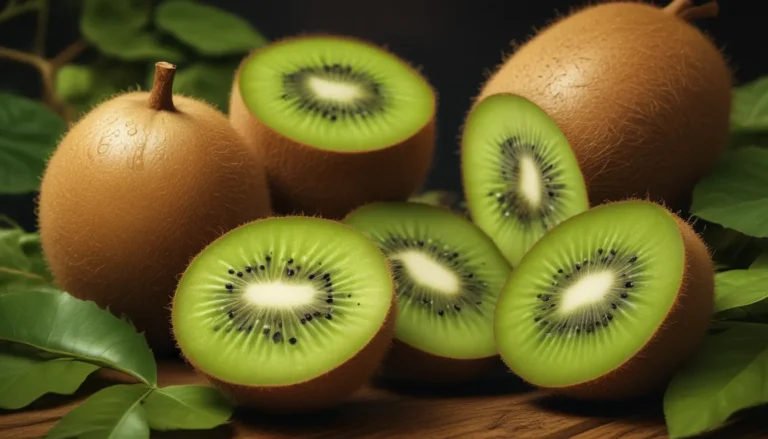The pictures in our articles might not always show exactly what the text is talking about. We use these images to make the article more interesting and eye-catching. They are there to add to the text, but not to replace it or show every detail.
Coconuts, nature's tropical treasure, are packed with an impressive array of nutrients that contribute to overall health and well-being. This comprehensive guide will dive deep into the nutrition facts of coconuts, exploring why this versatile fruit deserves a prominent place in a balanced diet.
What are Coconuts?
Coconuts are the fruit of the coconut palm tree (Cocos nucifera), a species widely cultivated in tropical and subtropical regions around the world. Despite their name, coconuts are not actually nuts but are classified botanically as a drupe - a fruit with a hard outer layer surrounding the seed.
For centuries, coconuts have been a staple food in many cultures, prized for their nutrition and incredible versatility. Nearly every part of the coconut can be used, from the nutrient-rich meat and water inside to the fibrous husk and hard shell, which find applications in various industries.
Coconut Nutrition Facts: A Detailed Breakdown

Let's explore the nutritional profile of coconuts in detail to understand why they're considered a superfood by many health enthusiasts. The following nutrition facts are based on a 100-gram serving of raw coconut meat:
1. Calories
Coconut meat is relatively high in calories, containing about 354 calories per 100-gram serving. This calorie content is primarily due to its high fat content. While this may seem high, it's important to remember that coconuts are nutrient-dense, providing a range of essential nutrients along with these calories.
The calorie content of coconut products can vary:
- Coconut water: About 19 calories per 100ml
- Coconut milk: Around 230 calories per 100ml
- Coconut oil: Approximately 862 calories per 100ml
Despite their high calorie content, coconuts can still be part of a healthy diet when consumed in moderation. The key is to be mindful of portion sizes and to consider coconuts as a source of healthy fats rather than a low-calorie food.
2. Fats
Coconuts are known for their high fat content, containing about 33 grams of fat per 100-gram serving. However, the type of fat in coconuts is what makes them unique:
- Approximately 89% of the fat in coconuts is saturated fat
- The majority of this saturated fat is in the form of medium-chain triglycerides (MCTs)
MCTs are metabolized differently than other types of fat. They're quickly absorbed and transported directly to the liver, where they can be used for immediate energy or converted to ketones. This unique property of MCTs is why some researchers believe they may offer health benefits, including:
- Potential boost to metabolism
- Increased feelings of fullness, which may aid in weight management
- Possible cognitive benefits, particularly in relation to Alzheimer's disease (though more research is needed)
It's worth noting that while the high MCT content of coconuts may offer some benefits, they're still a high-fat food. As with any food high in fats, they should be consumed in moderation as part of a balanced diet.
3. Carbohydrates
Coconut meat contains about 15 grams of carbohydrates per 100-gram serving. What's particularly interesting about the carbohydrate content of coconuts is its composition:
- Total carbohydrates: 15.23g
- Dietary fiber: 9g
- Sugars: 6.23g
The high fiber content of coconuts is one of their standout nutritional features. With 9 grams of fiber per 100-gram serving, coconuts are an excellent source of dietary fiber. This high fiber content contributes to several potential health benefits:
- Improved digestive health
- Better blood sugar control
- Increased feelings of fullness, which may aid in weight management
- Potential reduction in risk of heart disease and certain types of cancer
The natural sugars in coconuts provide a touch of sweetness without causing dramatic spikes in blood sugar levels, thanks to the moderating effect of the fiber content.
4. Protein
While not a significant source of protein, coconuts do provide a modest amount, with about 3.3 grams of protein per 100-gram serving. The protein in coconuts contains all the essential amino acids, making it a complete protein source, albeit in small amounts.
For comparison:
- Coconut water contains very little protein (about 0.72g per 100ml)
- Coconut milk contains slightly more (around 2.3g per 100ml)
While coconuts shouldn't be relied upon as a primary protein source, they can contribute to overall protein intake as part of a varied diet.
5. Vitamins
Coconuts contain several important vitamins, although not in large quantities. Here's a breakdown of the vitamin content in a 100-gram serving of coconut meat:
- Vitamin C: 3.3mg (4% of Daily Value)
- Thiamine (B1): 0.066mg (6% of DV)
- Riboflavin (B2): 0.020mg (2% of DV)
- Niacin (B3): 0.540mg (3% of DV)
- Vitamin B6: 0.054mg (3% of DV)
- Folate (B9): 26μg (7% of DV)
- Vitamin E: 0.24mg (2% of DV)
While these amounts may seem small, they can contribute to overall vitamin intake when coconuts are consumed as part of a balanced diet.
6. Minerals
Coconuts really shine when it comes to their mineral content. They're particularly rich in several essential minerals:
- Manganese: 1.500mg (65% of Daily Value)
- Copper: 0.435mg (48% of DV)
- Selenium: 10.1μg (18% of DV)
- Iron: 2.43mg (14% of DV)
- Phosphorus: 113mg (9% of DV)
- Zinc: 1.10mg (10% of DV)
- Potassium: 356mg (12% of DV)
These minerals play crucial roles in various bodily functions:
- Manganese is important for bone health and wound healing
- Copper aids in iron absorption and supports immune function
- Selenium acts as an antioxidant and supports thyroid function
- Iron is essential for oxygen transport in the blood
- Phosphorus is crucial for bone health and energy production
- Zinc supports immune function and wound healing
- Potassium helps regulate fluid balance and supports heart health
The high mineral content of coconuts contributes significantly to their overall nutritional value and potential health benefits.
7. Antioxidants
Coconuts contain various antioxidants, including phenolic compounds and flavonoids. These antioxidants play a crucial role in protecting cells from damage caused by free radicals, which may help reduce the risk of chronic diseases and support overall health.
Some of the key antioxidants found in coconuts include:
- Gallic acid
- Caffeic acid
- Salicylic acid
- p-coumaric acid
These antioxidants may contribute to the potential health benefits of coconuts, including their anti-inflammatory and antimicrobial properties.
8. Electrolytes
While this is more applicable to coconut water than coconut meat, it's worth mentioning the impressive electrolyte content of coconuts. Coconut water is particularly rich in potassium, making it a popular natural sports drink.
The electrolyte profile of coconut water includes:
- Potassium
- Sodium
- Magnesium
- Calcium
This balance of electrolytes makes coconut water an excellent choice for hydration, especially after light to moderate exercise.
Health Benefits of Coconuts
The unique nutritional profile of coconuts contributes to several potential health benefits:
Incorporating Coconuts into Your Diet
There are many delicious ways to enjoy coconuts:
- Add shredded coconut to your morning oatmeal or yogurt
- Use coconut milk in smoothies or curry dishes
- Cook with coconut oil for a subtle tropical flavor
- Enjoy fresh coconut water as a refreshing drink
- Use coconut flour in gluten-free baking
Remember, while coconuts offer many nutritional benefits, they are also high in calories. As with any food, moderation is key.
Frequently Asked Questions
Q: Are coconuts good for weight loss?
A: While high in calories, the MCTs and fiber in coconuts may support weight management as part of a balanced diet.
Q: Is coconut water better than sports drinks for hydration?
A: Coconut water is a natural source of electrolytes and may be a good choice for light to moderate exercise, but may not be suitable for intense endurance activities.
Q: Can people with nut allergies eat coconuts?
A: Coconuts are not botanical nuts, and most people with tree nut allergies can safely consume coconuts. However, always consult with a healthcare provider if you have concerns.
In conclusion, coconuts are a nutrient-dense food offering a unique blend of fats, fiber, vitamins, and minerals. While high in calories, they can be a healthy addition to most diets when consumed in moderation. From the refreshing water to the creamy meat, coconuts offer a tropical twist to your nutrition that's both delicious and beneficial.






